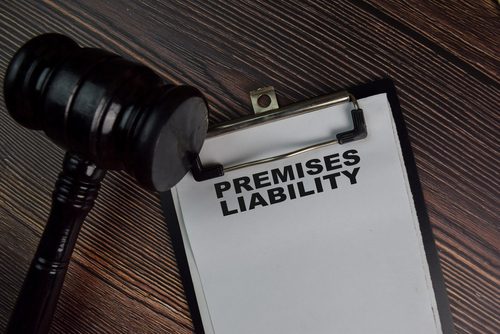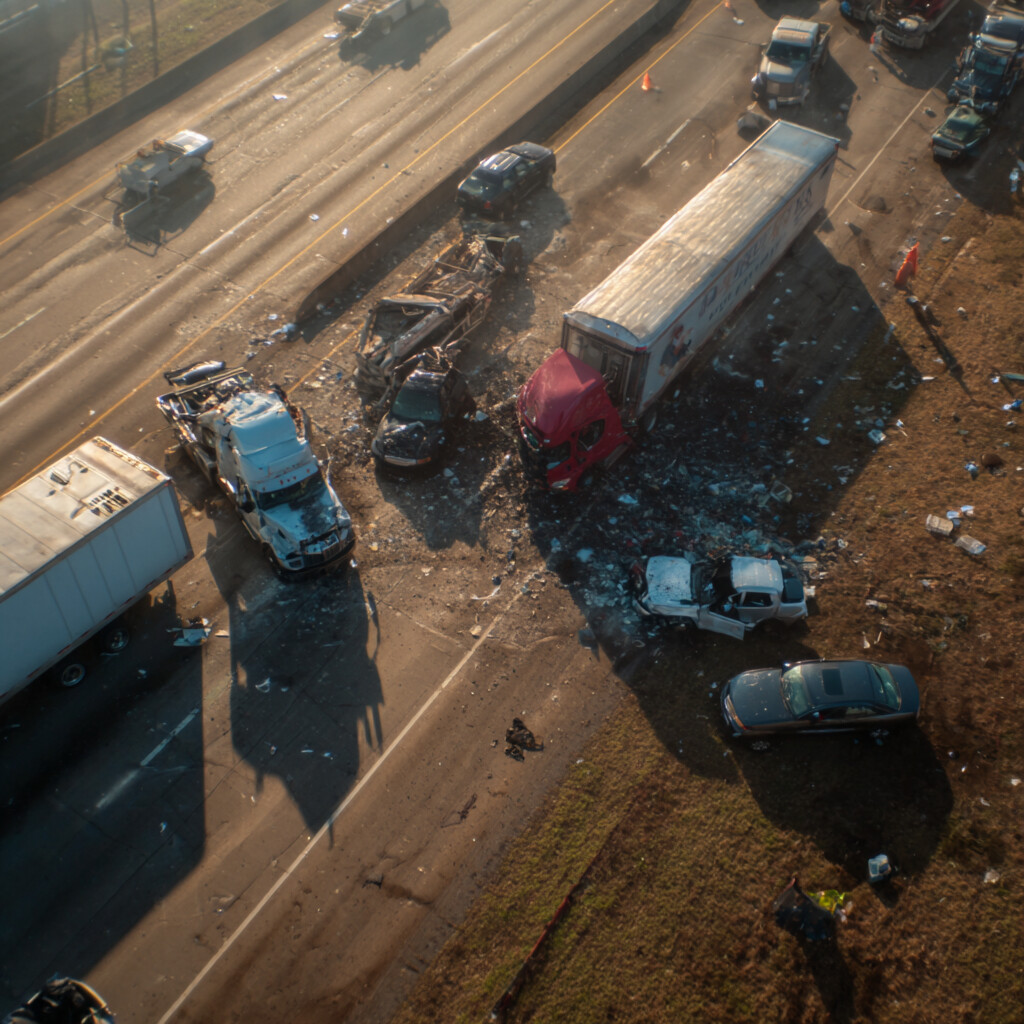When you’re injured on city property in Biloxi due to dangerous sidewalks, faulty drainage, or other hazardous conditions, the City of Biloxi can be held liable under Mississippi’s premises liability laws.
However, suing a government entity requires navigating the strict requirements of the Mississippi Tort Claims Act, which creates shorter deadlines, specific notice requirements, and damage caps that don’t apply to claims against private property owners. You have only 90 days to file formal notice with the city and just one year to file a lawsuit, so you must act immediately to protect your rights.
Understanding these rules can mean the difference between recovering fair compensation and losing your case entirely due to missed deadlines or insufficient evidence.
What Is Liability For City Sidewalks And Drainage In Mississippi?
Premises liability is the legal responsibility that property owners have to keep their property safe for visitors. This means if you get hurt on someone else’s property because of a dangerous condition, you may be able to recover compensation.
When it comes to government property like city sidewalks and drainage systems, the rules are much stricter. Cities in Mississippi are protected by something called sovereign immunity, which shields them from most lawsuits. Mississippi Tort Claims Act creates specific exceptions where you can sue a city, but it makes the process much harder than suing a private property owner.
Under Mississippi premises liability law, the City of Biloxi has a duty to maintain safe public property. However, you must prove they knew about the dangerous condition and failed to fix it within a reasonable time.
The most common city-owned properties where injuries lead to valid claims include:
- Public sidewalks and crosswalks
- Storm drains and drainage ditches
- City parks and recreational facilities
- Municipal parking lots
- Government building entrances
Who Is Liable For Dangerous Sidewalks And City Property In Biloxi?
Figuring out who is responsible for your injury isn’t always straightforward. Multiple parties may share fault, and identifying the correct defendant is crucial for your case.
When Is The City Of Biloxi Responsible?
The City of Biloxi becomes liable when it had “notice” of a dangerous condition and failed to repair it. Notice means the city either knew about the hazard or should have discovered it through reasonable inspections.
There are two types of notice that matter:
- Actual notice: The city received direct reports about the hazard through complaints, work orders, or employee observations
- Constructive notice: The dangerous condition existed long enough that city workers should have found it during routine maintenance
You must also prove the city had enough time to fix the problem after learning about it. A fresh pothole that formed overnight is different from a cracked sidewalk that’s been broken for months.
When Do Adjacent Property Owners Share Fault?
Sometimes the business or homeowner next to a public sidewalk bears responsibility for accidents. This happens when they create or contribute to the dangerous condition.
For example, a restaurant that allows grease to spill onto the sidewalk could be liable for slip and fall accidents. A homeowner whose tree roots crack the public sidewalk may also share responsibility for trip and fall injuries.
What If MDOT Or Harrison County Maintains The Area?
Not every road or sidewalk in Biloxi is actually maintained by the city. Major highways like Highway 90 fall under Mississippi Department of Transportation (MDOT) jurisdiction. Some areas may be Harrison County’s responsibility.
Filing a claim against the wrong government entity will get your case dismissed. We always verify which agency maintains the area where your accident happened before filing any paperwork.
What Hazards On City Property Cause Injuries In Biloxi?
Biloxi’s coastal location creates unique dangers on public property. Heavy rainfall, humidity, and frequent storms lead to conditions that cause serious injuries when the city fails to maintain its property properly.
Sidewalk Defects And Trip Hazards
Broken or uneven sidewalks are the leading cause of pedestrian injuries on city property. These hazards often develop gradually, giving the city time to notice and repair them.
Common sidewalk problems we see include:
- Significant sidewalk cracks
- Uplifted concrete slabs from tree root damage
- Missing or broken sidewalk sections
- Height differences between sidewalk panels
- Loose or missing handrails on ramps
Drainage Ditches And Missing Grates
Biloxi relies on drainage ditches and storm drains to handle heavy rainfall. When these systems aren’t properly maintained, they become serious hazards that can cause devastating injuries.
We frequently see accidents involving:
- Open culverts: Drainage pipes without proper covers or barriers
- Missing storm drain grates: Openings that can trap feet or cause falls
- Unmarked drop-offs: Sudden elevation changes near drainage areas
- Debris-filled ditches: Blocked drains that create standing water hazards
Standing Water And Slippery Algae
The Gulf Coast’s constant moisture creates perfect conditions for algae and mold growth on concrete surfaces. These buildups make sidewalks, parking lots, and building entrances extremely slippery.
Slip and fall accidents from algae are particularly common after rain or in shaded areas where surfaces stay wet longer. The city has a duty to clean these surfaces regularly or post warning signs about slippery conditions.
Parks Trails And Recreational Areas
City parks should be safe spaces for families to enjoy. Poor maintenance can turn recreational areas into accident sites with serious premises liability consequences.
Dangerous conditions we’ve handled include broken playground equipment, poorly lit walking trails, unmarked holes or drop-offs, and damaged sports facilities.
How Do I Prove Negligence Under The Mississippi Tort Claims Act?
Proving a city was negligent requires meeting strict legal standards beyond typical personal injury cases. You need specific evidence to show the city knew about the hazard and failed to address it reasonably.
Evidence To Collect At The Scene
The evidence you gather immediately after your accident often determines whether you can win your case. If you’re physically able, focus on documenting these key elements:
- Photographs: Take multiple pictures of the hazard from different angles, including wide shots showing the surrounding area and lack of warning signs
- Measurements: Use a ruler, coin, or your shoe to show the size of cracks, holes, or height differences
- Witness information: Get names and phone numbers of anyone who saw your fall or knows how long the hazard existed
- Environmental conditions: Note weather, lighting, and any factors that made the hazard more dangerous
The more detailed your documentation, the stronger your case becomes. These photos and measurements often provide the most compelling evidence of the city’s negligence.
How To Prove Notice To The City
Establishing that the city knew or should have known about the dangerous condition is often the hardest part of your case. We use several strategies to prove notice.
For actual notice, we request public records including maintenance logs, complaint records, work orders, and inspection reports. These documents can show the city received direct reports about the hazard.
When no records exist, we build a case for constructive notice by interviewing witnesses about how long the condition existed and photographing the extent of deterioration. A sidewalk crack that’s clearly been growing for months suggests the city should have discovered it during routine inspections.
Comparative Fault And Open And Obvious
Mississippi uses pure comparative fault, which means you can still recover damages even if you were partially responsible for your accident. However, your compensation gets reduced by your percentage of fault.
Cities often defend these cases by claiming the hazard was “open and obvious.” This means they argue any reasonable person should have seen and avoided the danger. We counter this defense by showing factors that made the hazard less obvious, like poor lighting, distractions, or the hazard’s location in a high-traffic area.
What Deadlines Apply To City Claims In Mississippi?
Claims against government entities have much shorter and stricter deadlines than other personal injury cases. Missing any of these deadlines permanently bars you from recovering compensation.
Under the MTCA, claims against a city follow a two-step deadline process: you must provide prompt formal notice to the municipality, and then file a lawsuit within a short statutory period.
Compare this to claims against private parties, which are governed by different timelines and generally do not require the same pre-suit notice.
One Year Statute Of Limitations
You have exactly one year from the date of your injury to file a lawsuit against the City of Biloxi. This deadline is firm – courts cannot extend it even for compelling reasons.
The short timeline makes it crucial to start building your case immediately. Gathering evidence, obtaining records, and preparing legal documents takes time, especially when dealing with government bureaucracy.
Ninety Day Pre Suit Notice
Before filing any lawsuit, you must provide the city with a formal “Notice of Claim” within 90 days of your injury. This document must include specific information about your accident, injuries, and the compensation you’re seeking.
The notice serves two purposes: it gives the city a chance to investigate and potentially settle your claim, and it satisfies a legal requirement for filing suit later. If you miss this deadline or file an incomplete notice, your case gets dismissed regardless of how strong your evidence is.
Damage Caps And Limits
Even if your claim succeeds, recovery under the MTCA is subject to statutory limits for each person in a single incident. This cap applies to all damages combined, including medical bills, lost wages, and pain and suffering.
The law also prohibits punitive damages against government entities. You can only recover compensation for actual losses and harm, not additional amounts meant to punish the city.
What Compensation Can I Recover Against A City?
If your claim succeeds, you can recover compensation for the financial, physical, and emotional harm caused by your injury. These damages help restore what you’ve lost and support your ongoing recovery.
Recoverable damages typically include:
- Medical expenses: All treatment costs, including future medical care, therapy, and rehabilitation
- Lost wages: Income you’ve missed due to your injury and time off work
- Lost earning capacity: Reduced ability to earn money if your injury causes permanent disability
- Pain and suffering: Compensation for physical pain and emotional distress
- Property damage: Replacement costs for damaged personal items like glasses, phones, or clothing
The key is documenting all your losses thoroughly. Keep every medical bill, pay stub, and receipt related to your injury. This documentation supports your claim for full compensation.
What Steps Should I Take After A Fall On City Property?
Your actions immediately following an injury on public property can protect both your health and your legal rights. Taking the right steps strengthens your case significantly.
Seek Medical Care
Get medical attention right away, even if you feel fine initially. Some serious injuries like concussions or internal bleeding don’t show symptoms immediately, which is why understanding how to document your injuries becomes critical for your case.
Medical records also create an official timeline of your injuries, which becomes crucial evidence. The longer you wait to see a doctor, the easier it becomes for the city to argue your injuries weren’t caused by the fall.
Report And Document The Hazard
Contact the appropriate city department to report both your injury and the dangerous condition. Get the report number and the name of the person you spoke with, as this documentation becomes essential when filing a personal injury claim in Biloxi.
This creates an official record that the city was put on notice about the hazard. It also starts a paper trail that can help your case later.
Preserve Physical Evidence
Keep the shoes and clothing you were wearing during your fall in a safe place without washing them. These items can serve as important physical evidence showing how the accident happened.
Also preserve any damaged personal items like broken glasses or a cracked phone. These help demonstrate the force of your fall and support your claim for property damage compensation.
Avoid Insurance Pitfalls
City insurance adjusters may contact you quickly asking for a recorded statement or offering a quick settlement. You’re not required to provide a statement, and we strongly advise against it.
Their goal is minimizing the city’s payout, not ensuring you get fair compensation. Never accept any settlement offer until you’ve spoken with an experienced attorney who can evaluate whether it covers all your losses.
How Can Maloney-Lyons Help With A City Property Claim?
Claims against the City of Biloxi require deep knowledge of the Mississippi Tort Claims Act and experience navigating government bureaucracy. At Maloney-Lyons Personal Injury and Car Accident Lawyers, we handle every aspect of these complex cases.
We start by investigating your accident scene, identifying the correct government entity, and gathering all available evidence. Our team manages the strict notice requirements and deadlines while you focus on recovering from your injuries.
When you work with us, you work directly with a Biloxi personal injury lawyer who understands both the law and the local conditions that make Biloxi accidents unique.
With offices in both Biloxi and Mobile, we’re part of the Gulf Coast community we serve. We understand the specific hazards that coastal weather and geography create on public property.
Act Fast Deadlines Apply To City Injury Claims
Time is your enemy in claims against government entities. The 90-day notice deadline and one-year statute of limitations leave no room for delay.
Every day you wait makes your case harder to win. Evidence disappears, witnesses forget details, and the city has more time to develop defenses. Starting your case early gives us the best chance to build a strong claim for maximum compensation.
Don’t let strict deadlines prevent you from getting the compensation you deserve. Contact Maloney-Lyons Personal Injury and Car Accident Lawyers today for a free consultation about your case.
FAQs
Can I Sue If The Dangerous Sidewalk Is On Highway 90 Maintained By MDOT?
Yes, but your claim would be against the Mississippi Department of Transportation, not the City of Biloxi. The same MTCA deadlines apply, but you must send your notice to the correct state agency.
Where Do I Send My 90-Day Notice For A Biloxi City Claim?
Send your Notice of Claim to the City Clerk at Biloxi City Hall via certified mail with return receipt requested. This ensures you have proof the city received your notice within the deadline.
Can A Business Be Liable For Algae On The Adjacent Public Sidewalk?
Yes, if the business created the slippery condition or has a legal duty to maintain that sidewalk section under their lease agreement or city ordinance.
Are Punitive Damages Available In Mississippi Tort Claims Act Cases?
No, the MTCA specifically prohibits punitive damages against government entities. You can only recover compensation for actual losses and damages.
Can I Still Win If The Hazard Was Obviously Dangerous?
You may still recover compensation under Mississippi’s comparative fault system, but your damages could be reduced based on your share of responsibility for the accident.
How Do I Prove The City Knew About A Sidewalk Defect?
We obtain city maintenance records, complaint logs, and work orders through public records requests. If no documentation exists, we use witness testimony and photos to show the defect existed long enough for discovery.
What Are Maloney-Lyons’ Legal Fees For City Property Claims?
We handle all personal injury cases on a contingency fee basis. You pay no upfront costs, and we only collect attorney fees if we successfully recover compensation for your case.





